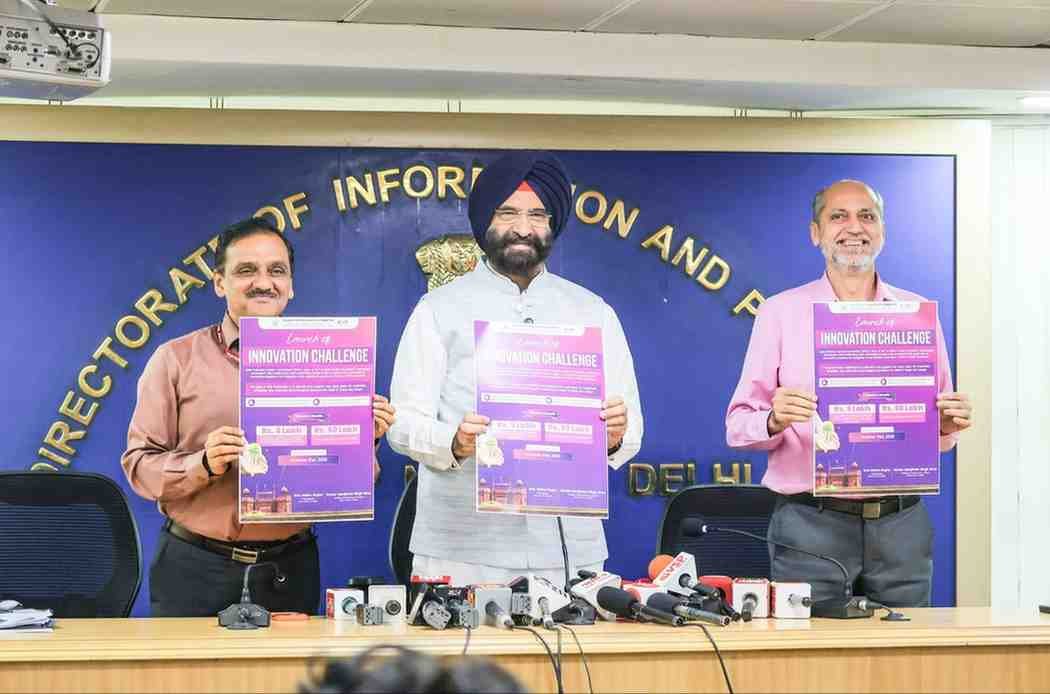Delhi Turns to Innovators for Clean-Air Breakthrough
In a bold push to tackle one of the country’s most persistent environmental challenges, the Delhi government has launched a Clean-Air Innovation Challenge offering rewards of up to Rs 50 lakh. The initiative, announced on Friday by Environment Minister Manjinder Singh Sirsa, aims to crowdsource deployable, affordable technologies that can directly cut particulate pollution—especially PM2.5 and PM10—from roads, vehicles, and construction activities across the city.
“Bring us what works on the road or at construction and industrial sites. If it cuts PM2.5 or PM10 substantially, installs easily, and stays affordable, we’ll back it,” Sirsa said, announcing the initiative.
The challenge is being coordinated by the Delhi Pollution Control Committee (DPCC), which will lead the citywide search for practical, real-world solutions that can survive Delhi’s extreme weather conditions. The move marks the first time the national capital has invited startups, researchers, and institutions to collaborate directly on air quality solutions through an open innovation platform.
Innovation is the only solution!
To tackle air pollution in Delhi, DPCC has launched an 'Innovation Challenge', inviting participants from across the country to share their innovative ideas that can help improve Delhi’s air quality.
This challenge focuses on ambient air and… pic.twitter.com/upB707eM04
— Manjinder Singh Sirsa (@mssirsa) October 10, 2025
A Three-Stage Evaluation for Scalable Solutions
According to the government, the competition will follow a three-tier evaluation process designed to ensure that only the most effective and feasible technologies make it to large-scale deployment.
In the first stage, proposals will undergo an initial screening by the DPCC. Shortlisted innovations will then proceed to the second stage, where field or laboratory trials will be conducted by experts to test real-world performance. After this phase, selected projects will receive a cash award of Rs 5 lakh each as recognition and to support further development.
The final stage involves validation by national research institutions such as the National Physical Laboratory (NPL). Solutions that pass this final evaluation will be recommended for deployment by the Delhi government, with a grand prize of Rs 50 lakh awarded to each top-performing project.
This structured, science-backed process, officials say, will help identify technologies that can rapidly move from concept to citywide implementation—something Delhi urgently needs as it battles rising air pollution levels each winter.
Focus on Practical, Low-Cost Innovation
The initiative specifically encourages solutions that are low-cost, scalable, and easy to install—qualities seen as critical for widespread adoption in a densely populated and high-traffic city like Delhi.
Examples of eligible innovations include dust-trapping road coatings, portable air-filtration systems, exhaust-capture devices, and other on-site technologies that can significantly reduce pollution at the source. The government has emphasized that solutions should not only work in laboratory settings but also withstand Delhi’s diverse conditions—from scorching summers to dust-laden winters.
“Delhi is throwing open its doors to anything that works on the ground,” Sirsa said, adding that the city has recorded the highest number of clean-air days in a decade, but the government’s ultimate goal is to make “every day a clean-air day.”
Open for All: From Students to Startups
The Clean-Air Innovation Challenge is open to individuals, startups, research institutes, IITs, and companies across India. Applications can be submitted online until October 31, 2025, at www.dpcc.delhigovt.nic.in.
The competition reflects Delhi’s shift from enforcement-based strategies to innovation-driven air management, recognizing that technological solutions must complement policy action.
“Enforcement alone won’t get us there. This is a 24×7 innovation mission,” Sirsa noted. “If a solution can cut particulate matter, fit Delhi’s budget, and install easily, we’ll take it from trial to citywide use. That’s how prototypes become public goods—fast, and where people need relief the most.”
Building a Model for Other Cities
Experts have welcomed the initiative as a forward-looking model that could inspire other Indian cities struggling with poor air quality. By linking financial incentives with scientific validation, Delhi’s approach combines innovation, accountability, and real-world testing.
If successful, the program could pave the way for localized pollution-control technologies that complement national efforts like the National Clean Air Programme (NCAP). As Delhi prepares for yet another pollution-heavy winter, the Innovation Challenge offers a glimmer of hope—one that depends not on enforcement or bans, but on ingenuity and collaboration.








